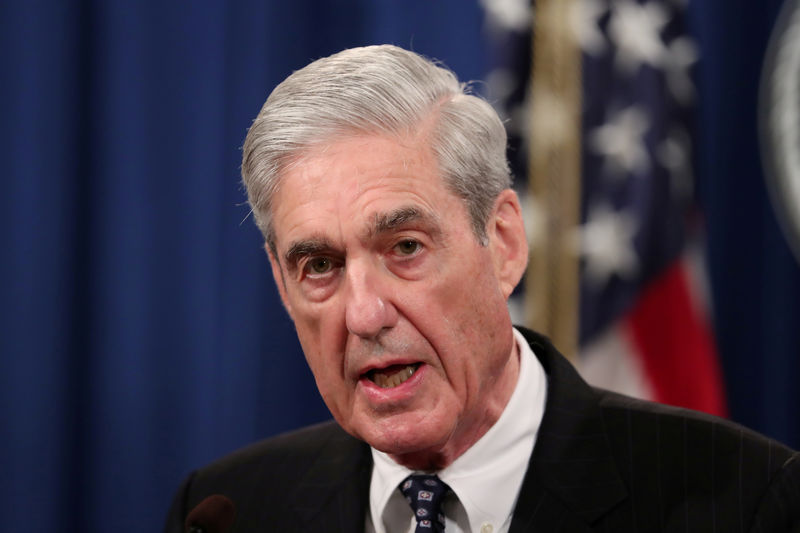By David Morgan and Richard Cowan
WASHINGTON (Reuters) - Two U.S. House committees will delay former Special Counsel Robert Mueller's planned July 17 testimony for one week to allow lawmakers to question him for a longer period of time, the committees said on Friday.
Mueller, who oversaw the federal investigation into alleged Russian interference in the 2016 U.S. presidential election, is now scheduled to testify on July 24 before the House Judiciary and Intelligence committees, the panels' chairmen said in a statement.
Under the new agreement, Mueller will appear before the Judiciary Committee for three hours. Following that testimony, Mueller will then appear before the Intelligence Committee.
"All members - Democrats and Republicans - of both committees will have a meaningful opportunity to question the Special Counsel in public, and the American people will finally have an opportunity to hear directly from Mr. Mueller about what his investigation uncovered," said Judiciary Chairman Jerrold Nadler and Intelligence Chairman Adam Schiff.
Lawmakers had made conflicting statements about the hearing earlier on Friday. Several predicted a delay, but some said a final agreement was not yet in hand.
The uncertainty was an unwelcome distraction for Democrats, who have billed Mueller's testimony as a potential watershed moment that could focus attention on segments of his 448-page report that raise questions about Republican President Donald Trump's efforts to impede the federal investigation.
The committees have not officially announced any format.
Lawmakers began to consider a delay when Judiciary Committee members saw that many of the panel's less senior lawmakers would not get time to ask questions.
"Everyone on the committee wants an opportunity to examine Mr. Mueller," said Representative David Cicilline, a senior House Judiciary Democrat. "We have been arguing for as much time as we can get. Obviously, we want to make sure that there's a full hearing."
Republican protests about the arrangements boiled over earlier this week, when Republicans accused Schiff of upstaging the Judiciary Committee, despite its primary jurisdiction over special counsel investigations.
Schiff's Intelligence Committee has 22 members, about equal to the number of Judiciary members who were initially expected to question Mueller. Judiciary has 41 members.
The top Republican on the Judiciary Committee, Representative Doug Collins, said he applauded the announcement of a longer hearing.
In April, Mueller submitted the findings of his nearly two-year investigation to the Justice Department.
Mueller's investigation did not find evidence of collusion between Russia and the Trump 2016 presidential campaign. It made no final recommendation on whether there was obstruction of justice by Trump.

The Judiciary Committee also sought to interview former Mueller aides Aaron Zebley and James Quarles behind closed doors on Wednesday. But Representative Steve Cohen, a Democrat, told reporters the two men would not appear after the Justice Department directed them not to testify.